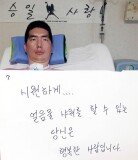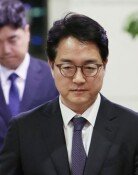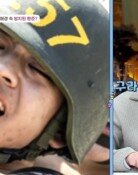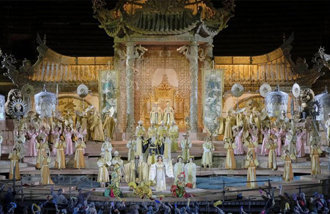Time to Return to Our Daily Lives
The candlelight vigils organized by the People`s Association for Measures Against Mad Cow Disease Tuesday are likely to serve as momentum for the way citizens and organizations hold future demonstrations.
○ Continued protests face a growing lukewarm response
According to the association and police on Wednesday, future rallies are expected to include continuous small scale candlelight vigils combined with massive demonstrations in observance of historic events such as the anniversary of the death of two high school girls (Mi-sun and Hyo-soon) crushed to death by a U.S. armored vehicle to spark a blaze of anti-Americanism of the past.
This is based on the belief of protest organizers that the current protests could backfire given that they paralyze traffic and cause inconveniences to ordinary citizens.
Moreover, with the recent scuffles with police in which even iron pipes were used, most people have seemed to lose interest in the militant demonstrations.
In response to the shift in public sentiment, the association came up with a variety of measures to regain slipping public interest including holding small scale candlelight vigils at the same time as massive scale demonstrations marking major historic events such as the deaths of Mi-sun and Hyo-soon (June 13, 2002), the funeral of the late Lee Byeong-ryeol who set fire to himself in protest of the Lee administration (June 14), the South-North Korea Joint Declaration (June 15), and U.S. President George W. Bushs visit to Korea (early July).
Accordingly, it is expected that June 20, which was set by the association as the final day of renegotiation for the government over the resumption of U.S. beef imports, will serve as new momentum for the demonstrations. However, it remains to be seen whether the current fever and enthusiasm for the rallies will survive down the road.
A human rights worker who joined the demonstrations said, The reason for holding candlelight vigils would fundamentally weaken if President Lee admits his shortsighted measures over the resumption of U.S. beef imports.
○ A growing call by citizens for a return to normalcy
In the wake of the June 10 candlelight vigils, an increasing number of citizens and netizens are raising their voices, calling for a return to normal life.
The portal Web site Agora, where protesters against U.S. beef imports actively participate, Wednesday featured a slew of public opinions indicating the desire to finish the demonstrations and resume ordinary life.
A netizen on the Web site said, I think we should bring an end to the protests. Now its time to focus attention on the governments decision. We have to save our energy before making our voices heard.
Another said, Its time to end the protests. We have to return to our positions and do our best for the nation and the people.
A citizen who participated in the candlelight vigils with great enthusiasm at a recent demonstration told a reporter, I believe the public anger shown in the protests is enough to get the message across to Cheong Wa Dae. He added, Now politicians should return to the National Assembly to reflect what they realized from the candlelight vigils in institutional implementations.
Experts on trade and administration pointed out that it is inappropriate to take issue with the government over its lukewarm response to the growing public concerns over U.S. beef import resumption considering the sensitivities surrounding the issue.
Park Tae-ho, chairman of the Korea Trade Commission and president of the Graduate School of International Studies at Seoul National University, said, It is impossible for the administration to turn over the agreement with the United States. We need to restrain ourselves until the government comes up with alternatives.
Namgung Geun, chairman of the Korean Association for Public Administration
and administration professor at Seoul Industry University, said, Korea should guarantee that President Lee has the right to carry out the normal operation of state affairs based on the presidential system. It is regrettable to see that the government is stranded over the public demonstrations, failing to perform other important state affairs.
turtle@donga.com dawn@donga.com







